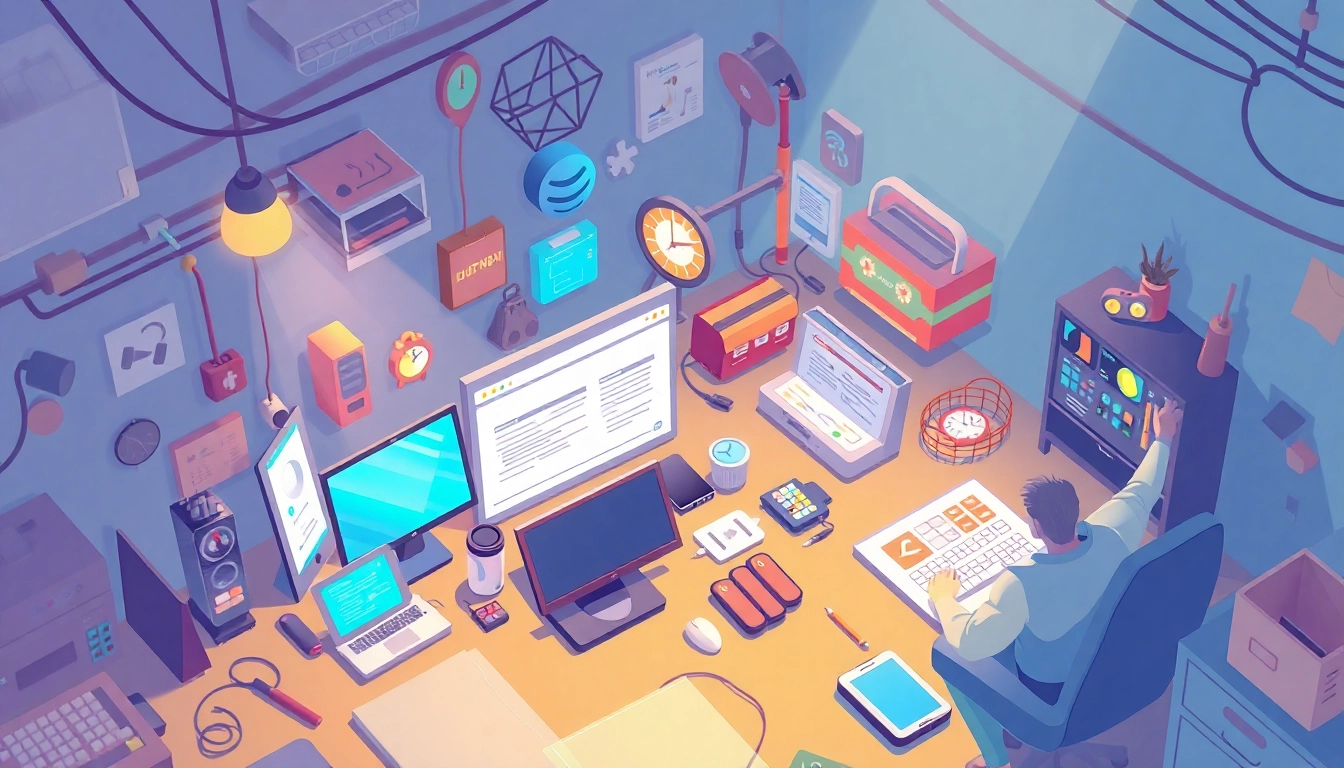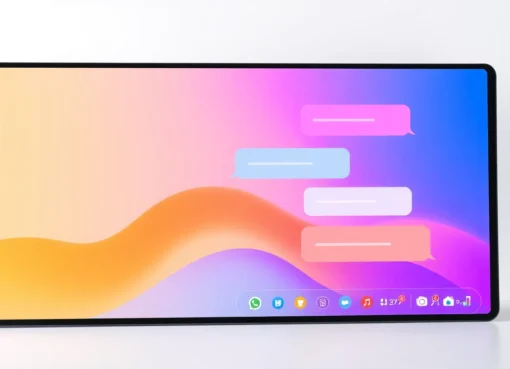Discovering the Impact of Technology on Modern Society and Daily Life

In today’s fast-paced world, technology has become an integral part of our lives. From the smartphones we carry to the platforms we use for work, technology shapes every aspect of our daily routines and interactions. The sheer magnitude of technology today can be overwhelming, yet understanding its evolution, implications, and various forms can offer valuable insights into the future. This article delves into the many dimensions of technology, exploring its history, types, economic impacts, challenges, and effects on personal well-being.
The Evolution of Technology
Historical Milestones in Technological Advancements
The journey of technology can be traced back to the dawn of humanity, but several milestones mark its evolution. Starting with the invention of the wheel around 3500 BC, followed by the development of the printing press in the 15th century, these innovations have fundamentally changed societies. The Industrial Revolution of the 18th and 19th centuries introduced machines that dramatically increased production capabilities. Fast forward to the 20th century—computers emerged, enabling digital transformations that laid the groundwork for today’s tech-centric societies.
How Technology Shapes Our Daily Routines
Modern technology has not only transformed industries but also our daily lives. Think about how you interact with information now. The internet provides immediate access to data, entertainment, and social networks. Routines have shifted dramatically; from online shopping to telecommuting, the very fabric of daily life has been rewoven. Additionally, smart home devices help manage household tasks, allowing for efficiency and convenience previously thought impossible.
The Technological Revolution: Past to Present
The current technological revolution is characterized by advancements in artificial intelligence (AI), machine learning, and the Internet of Things (IoT). The integration of AI into everyday applications—from virtual assistants like Siri and Alexa to more sophisticated algorithms in business analytics—is changing how decisions are made. The IoT connects devices, creating a network that enhances operations in homes and industries alike. As we look forward, the convergence of digital and physical worlds promises further transformation.
Understanding Different Types of Technology
Consumer Technology and Its Influence
Consumer technology has dramatically reshaped how we communicate, interact, and function within society. Smartphones serve as the primary tool for personal connectivity, enabling instant communication and access to vast information. The rise of social media platforms has created new forms of community-building and self-expression, while e-commerce platforms have created unprecedented opportunities for businesses. The impact extends to industries; companies must adapt rapidly to consumer technology trends to remain competitive.
Information Technology: A Pillar of Contemporary Life
Information Technology (IT) refers to the use of systems for storing, retrieving, and sending information. This branch of technology is vital in businesses and organizations, ensuring smooth operations and supporting the flow of information. Cloud computing, for instance, has transformed data management, allowing companies to store and access data remotely, fostering collaboration and efficiency.
Emerging Technologies Shaping the Future
Innovations such as blockchain, quantum computing, and advanced robotics are poised to revolutionize various fields. Blockchain, originally developed for cryptocurrencies, is now being employed in supply chain management for enhanced transparency. Quantum computing holds the promise of solving complex problems that are currently unattainable for classical computers, impacting everything from cryptography to drug discovery. As these technologies mature, their broader societal impacts will likely be profound.
The Role of Technology in Economy and Workforce
Job Changes Due to Technological Innovations
Technology has always played a crucial role in defining the workforce landscape. While it creates new jobs—like app developers and data analysts—it also renders certain positions obsolete. This shift requires workers to adapt continuously, often necessitating new skills and knowledge. Reskilling and upskilling have become imperative for career longevity; hence, educational institutions and organizations are increasingly focusing on lifelong learning.
The Gig Economy: Technology’s Contribution
The rise of the gig economy highlights technology’s influence on work patterns. Platforms like Uber and TaskRabbit facilitate freelance opportunities, allowing individuals to monetize skills on their terms. While this flexibility can be advantageous, it also raises questions about job security, benefits, and labor rights. As this economic model continues to expand, its sustainability and effects on traditional employment will be closely scrutinized.
Future Job Skills and Technological Adaptability
The future job market will demand a unique blend of hard and soft skills. Digital literacy is quickly becoming as fundamental as basic literacy. Adaptability, problem-solving abilities, and emotional intelligence will be increasingly valued by employers. Companies are likely to prioritize workers who can seamlessly integrate new technologies into their workflows while maintaining positive interpersonal relationships. Hence, educational programs must evolve to align with these demands.
Challenges and Concerns of Rapid Technological Growth
Privacy and Security Issues in Technology
As technology becomes more pervasive, concerns around privacy and security have escalated. Notably, data breaches have become commonplace, exposing millions to potential identity theft and fraud. Companies must take proactive measures to safeguard consumer data, which includes implementing robust cybersecurity measures. It also requires transparency in data collection processes to build trust between consumers and organizations.
Ethical Considerations: Technology and Society
Technological advancements bring ethical dilemmas that society must address. For example, the use of AI in hiring practices raises concerns about bias and discrimination. Similarly, surveillance technologies challenge the balance between security and personal freedom. It is critical for policymakers and technologists to work collaboratively to establish frameworks that guide responsible technology use and innovation.
Balancing Technological Advancements with Human Values
In striving for innovation, the temptation to prioritize efficiency over ethical considerations can lead to negative societal consequences. Businesses and communities must endeavor to balance technological advancements with human values, ensuring that innovations serve the public good rather than merely profit motives. This necessitates ongoing dialogue among stakeholders—including consumers, civil society, and technologists—to establish standards that promote ethical technology development and usage.
Technology’s Impact on Personal Well-being
The Intersection of Health and Technology
Technology has significantly transformed healthcare delivery and patient outcomes. Telemedicine, for instance, has made healthcare accessible to remote communities, breaking geographical barriers. Wearable health tech, such as smartwatches, enables individuals to monitor vital signs and fitness metrics, fostering proactive health management. However, this shift also poses challenges, primarily concerning data security and readiness to engage with new health technologies.
Technology in Mental Health Management
Emerging technologies have begun to play a pivotal role in mental health management. Apps designed for mindfulness, meditation, and therapy provide users with resources to better manage their mental health. Additionally, AI-driven chatbots can offer support and guidance. While these tools are beneficial, they must complement and not replace traditional therapeutic approaches, thus fostering a holistic approach to mental health.
Finding Balance: Screen Time and Real Life
As technology entices users to engage endlessly, finding a balance between online and offline life has become crucial for personal well-being. Excessive screen time can lead to physical and mental health issues, including anxiety and disrupted sleep patterns. Individuals must establish boundaries that promote a healthier relationship with technology, like scheduled breaks from devices and prioritizing face-to-face interactions.


